Apple unveils new iPads, Macs and Mac Minis at event in New York
APPLE has launched a new-look range of hi-tech iPads and Macs in what the company calls its “biggest change” to date.
NEW-LOOK Apple iPads with larger screens, smaller bodies, face recognition, a redesigned Pencil, controversial new connections, and significantly bigger prices arrived overnight, as Apple revamped the world’s most popular tablet computers.
But the announcement may also signal the death of the fingerprint sensor, headphone jack, and Lightning cable for highly portable gadgets as all three were eliminated from the devices in a major shake-up revealed in New York.
The tech giant also unveiled two new computers in the Brooklyn Academy of Music, including a redesigned MacBook Air notebook with a sharper display, a slimmer and lighter body, and new keyboard, and a beefed-up Mac Mini for the desktop.
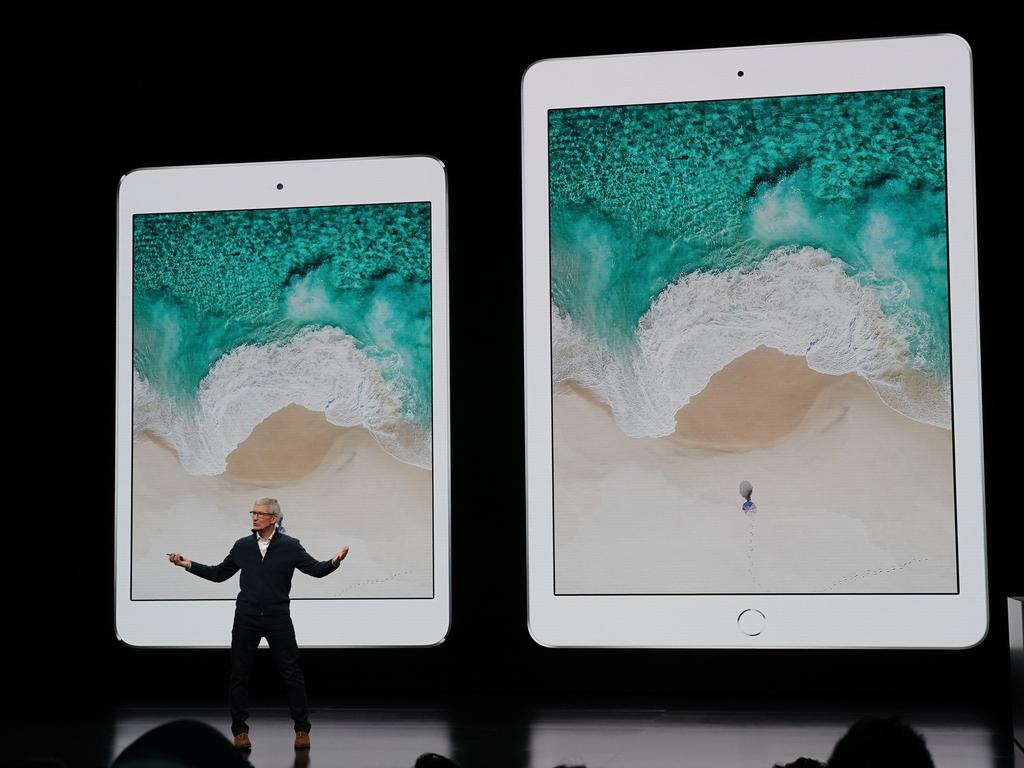
Apple chief executive Tim Cook said the computing revamp, just one month after the iPhone XS launch, was important as its tablet was no longer just the most popular computer of its kind, but had overtaken laptops to become the most popular portable computer.
“We’ve now sold well over 400 million iPads, making it the most popular tablet by far. No one else is even close,” he said.
“But what you might not know is we’ve sold more iPads in the last year than the entire notebook line-up of the big manufacturers.”
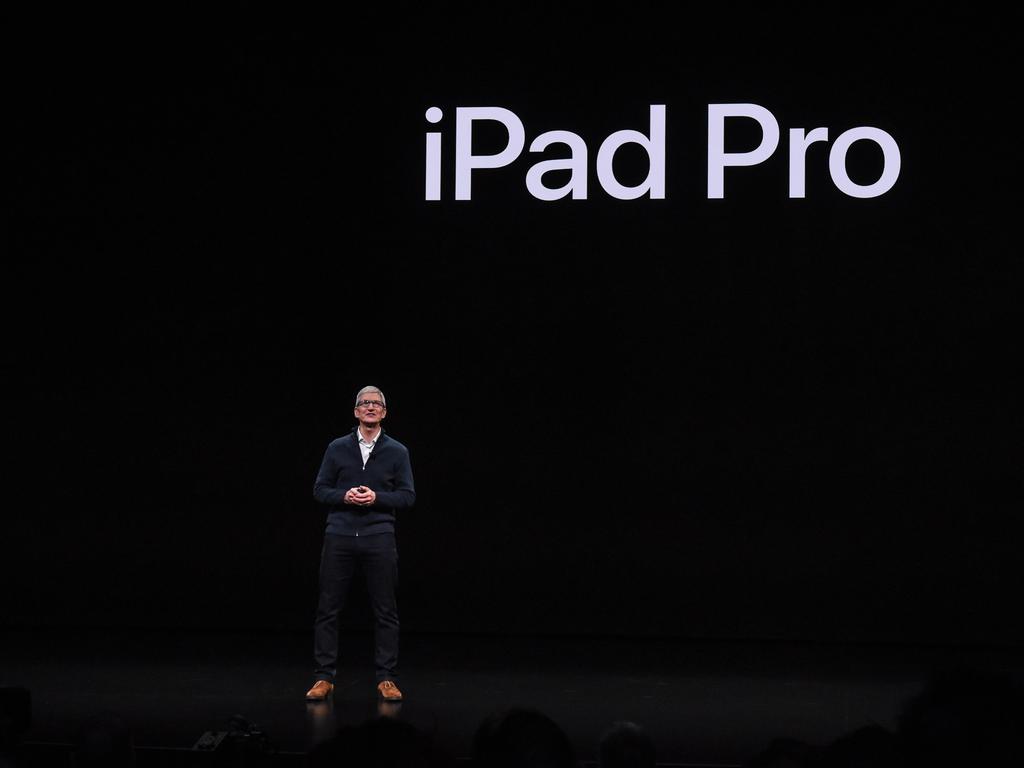
The top new iPad Pro will feature a 12.9-inch Liquid Retina display inside a significantly smaller body thanks to the removal of its fingerprint sensor and slimmer borders around the screen, a new A12X Bionic sensor, Face ID facial recognition for security, storage of up to one terabyte, and a redesigned Apple Pencil that can attach to the iPad and charge magnetically. The smaller iPad Pro will gain a larger, 11-inch screen.
The addition of a USB-C connection to the iPad is also a major change for the company, as it will eliminate Apple’s own Lightning connection and will mean Apple and Google tablets can share the same cable for the first time.
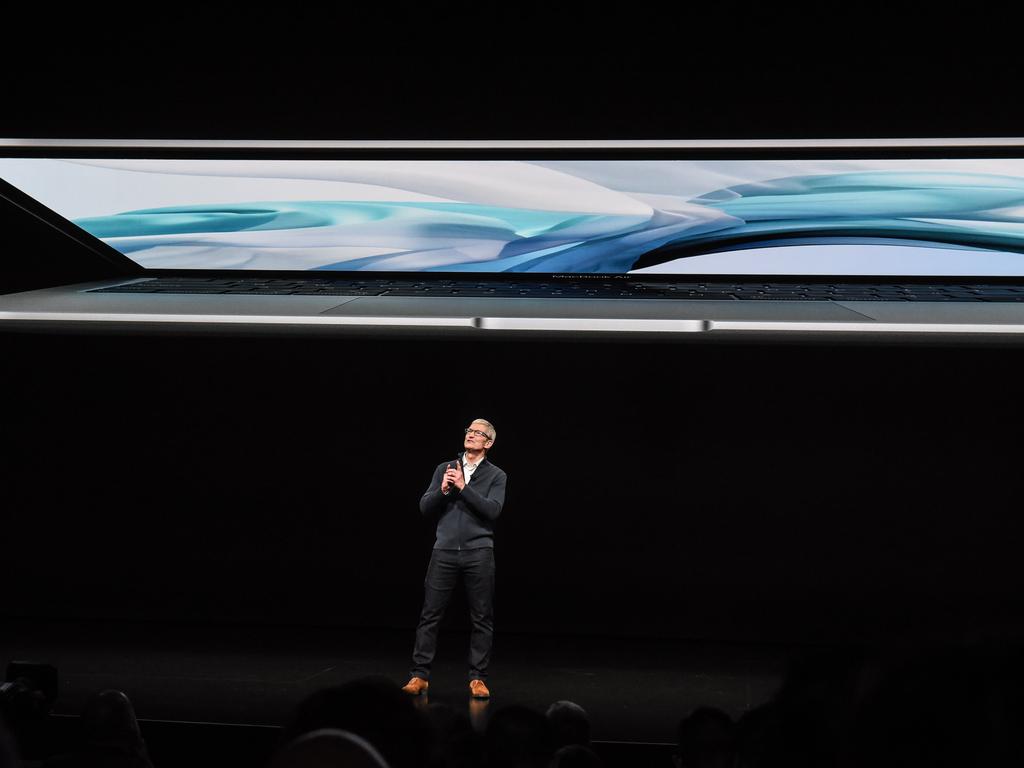
Users will also be able to use the new USB-C connection to directly connect the new iPad to devices including DSLR cameras, 5K displays, and computers, and even charge their iPhones from the iPad’s battery.
Experts have warned the change from Lighting to USB-C may cause “teething problems” for some iPad users, however, who will now have to replace their iPad cords and docks, or at least purchase adaptors.
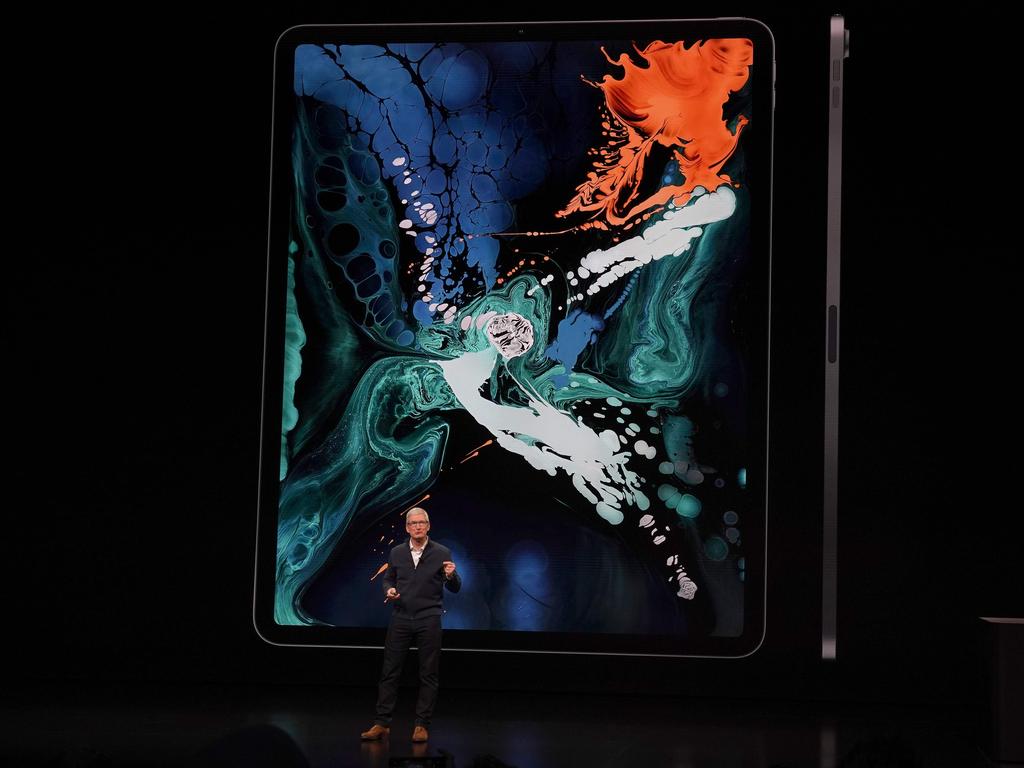
But users will also have to fork out a lot of extra cash for the latest Apple tablet, as the price of the top model iPad Pro 12.9 rose from $1919 to $2869, making it more expensive than many top-tier notebook computers.
Apple also revealed a major redesign of its MacBook Air at the event, with the new device to feature a high-resolution Retina screen for the first time, smaller borders around its 13.3-inch screen, a redesigned keyboard, larger touchpad, and, unusually, a Touch ID fingerprint sensor on its keyboard. The new computer will sell for between $1849 and $2149 when it launches on November 7.
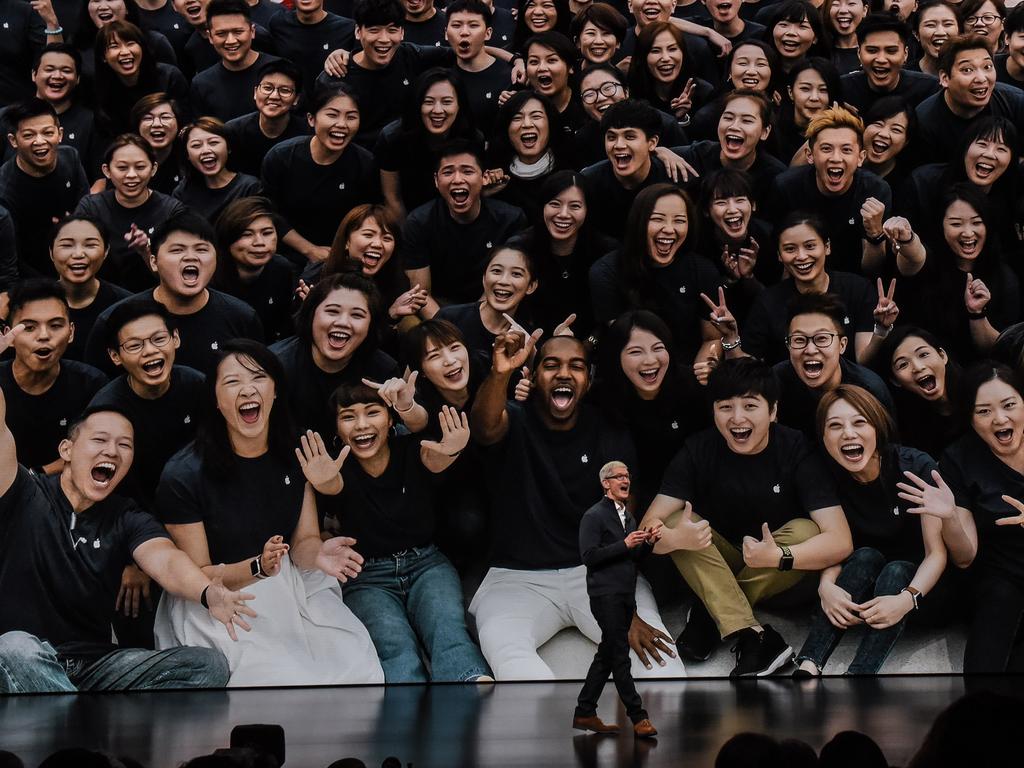
Mr Cook said the MacBook Air had previously “redefined the modern notebook” and uses had been keenly anticipating a revamp.
“Unlike any notebook that’s come before or since, MacBook Air has become the most beloved notebook,” he said.
“It’s time for a new MacBook Air; one that takes the new MacBook experience even further in a way that is important to our customers.”
The notebook will also be made from recycled aluminium, an announcement met with loud cheers from the event’s audience, and will feature a slimmer body at just 15mm thick and weighing 1.2kg.
Apple will also launch a new Mac Mini for the desktop, starting at $1249, promising a 500 per cent speed boost thanks to a six-core chip and up to 64GB RAM, flash storage of up to two terabytes, and four USB-C connections.
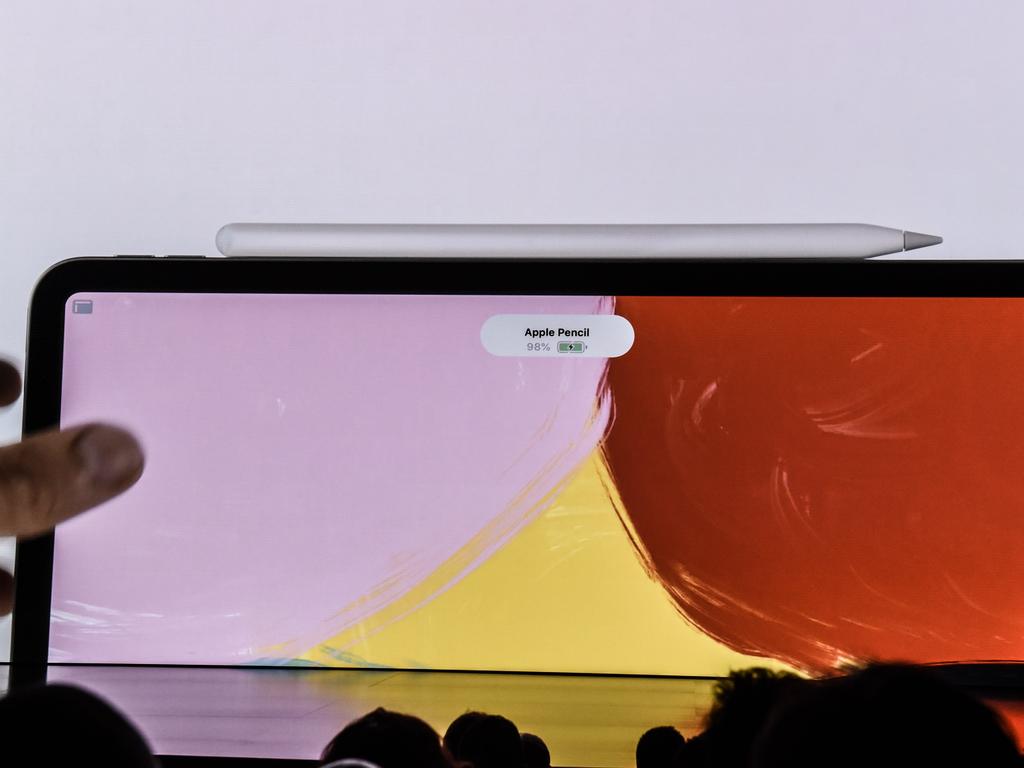
Apple is banking on the iPad redesign to convince users to upgrade their old tablet computers after four years of declining sales.
The tech giant sold 19.2 million iPad computers worldwide last year, down from 31.9 million at the peak of their popularity in 2013.
But Telsyte managing director Foad Fadaghi said Australians would likely snap up at least 1.5 million iPads in the last half of the year as they were “keen” iPad users.
“We expect the iPad will maintain its position as the leading tablet,” he said.
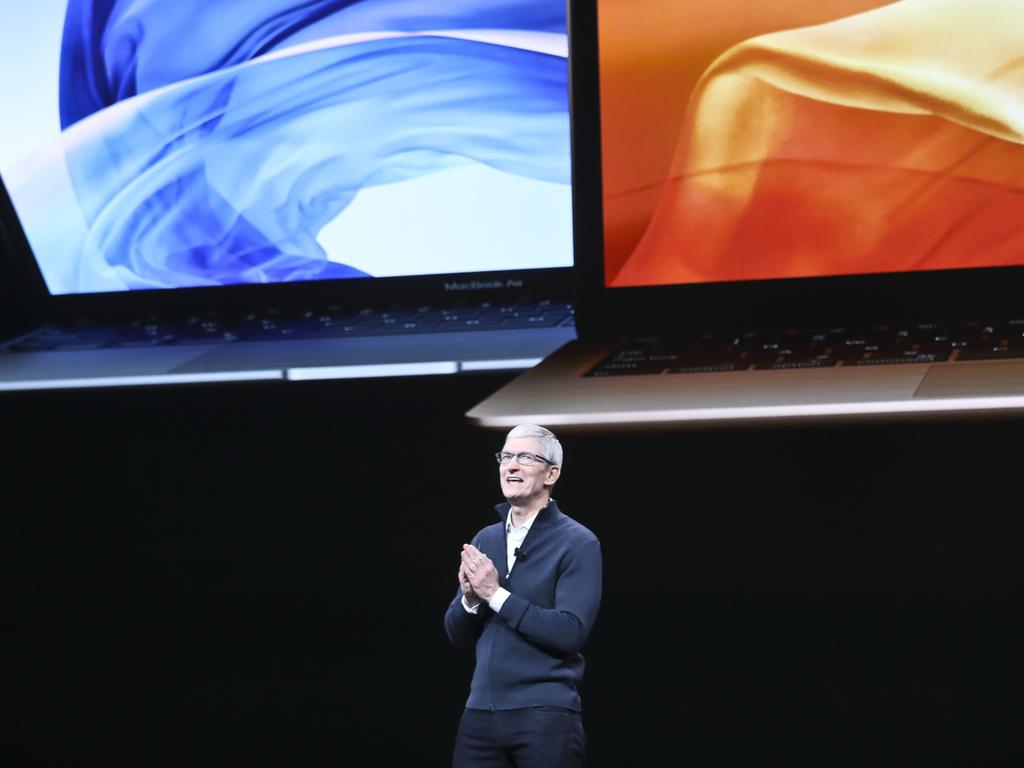
Apple iPads were particularly popular in schools, Mr Fadaghi said, and more people were buying them to replace laptop computers.
Australians will buy three million tablet computers this year, according to Telsyte, and Apple lead both Samsung and Microsoft.
Jennifer Dudley-Nicholson travelled to New York as a guest of Apple.



